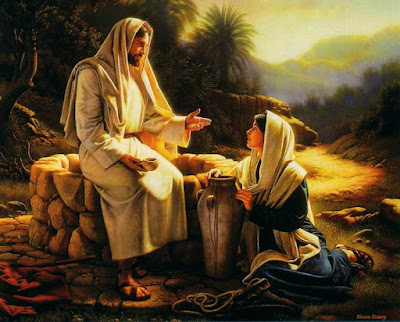Pasensya na po at nahuli, nabusy lang po sa school.
The 3rd Sunday of Lent Year C helps us reflect on God’s
call, repentance, and growth. The readings from Exodus, Corinthians, and Luke
guide us to understand our faith journey better.
- God’s
Call to Moses: In Exodus, God calls Moses from the burning bush. This
shows that God reaches out to guide and lead His people.
- God’s
Promise of Freedom: God promises to free the Israelites from slavery
in Egypt. This reminds us that God is always working to free us from our
own sins and struggles.
- Warnings
Against Idolatry: In Corinthians, Paul warns against idol worship and
turning away from God. This teaches us to stay faithful and avoid things
that take us away from God.
- Importance
of Repentance: Jesus in Luke speaks about the need to repent. He warns
that without repentance, we will perish, showing the importance of turning
back to God.
- God’s
Patience: The parable of the fig tree in Luke highlights God’s
patience. He gives us time to change and grow in faith, but we must
respond.
- Fruitfulness
in Faith: The fig tree parable also teaches about bearing fruit. We
are called to live fruitful lives, showing our faith through actions.
- God’s
Presence in Hard Times: The readings remind us that God is with us in
difficult times. Like He was with the Israelites, He supports and guides
us through our challenges.
- Community
and Accountability: Paul speaks to the Corinthians about learning from
their ancestors’ mistakes. This shows the importance of community and
holding each other accountable in our faith.
Reflecting on these themes during the 3rd Sunday of Lent Year C helps deepen our understanding of God’s presence and our need for repentance. The readings guide us to live more faithfully and trust in God’s promises.
Entrance:
1. Tun-I Kami Ginoo
2. Pasaylo, Ginoo
3. Alay sa Kapwa (Esteban, Hontiveros)
4. Buksan ang aming puso (Tinio,
Hontiveros)
5. Dinggin Mo (Esteban, Hontiveros)
6. Hosea (Norbet)
Readings:
- First
Reading – Exodus
3:1-8A, 13-15: Moses encounters God in a burning bush at Horeb.
Instructed to remove his sandals on holy ground, he is tasked to rescue
Israelites from Egypt, armed with God’s name, “I AM.”
- Responsorial
Psalm – Psalm
103: Remember the marvels the Lord has done.
- I
praise the Lord for His kindness: forgiving sins, healing diseases,
rescuing lives, and crowning with love. He is righteous, merciful, and
gracious, with boundless mercy.
- Second
Reading – 1
Corinthians 10:1-6, 10-12: Our forefathers, guided by a cloud and sea,
were baptized into Moses, shared spiritual sustenance, and drank from
Christ, the spiritual rock. Their failures in the wilderness warn us
against evil cravings and complacency.
- Gospel – Luke
13:1-9: Jesus addressed the news of Galileans killed by Pilate,
emphasizing that suffering isn’t directly linked to personal sinfulness.
He called for repentance to avoid a similar fate. He then told a parable of a barren fig tree; a gardener sought more time to nurture it, symbolizing God’s patience and call for repentance.
Offertory:
1. O
Dios Dawata (Koro Viannista)
2. Kini Mao Akong Lawas
3. Alay Kapwa (Tinio & Hontiveros)
4. Kung ‘Yong nanaisin (Francisco)
5. Take and Receive
6. Prayer of Rupert Mayer
7. One Bread, One Body
Communion:
1. Balaan nga Gugma
2. Dios Namo sa Kalooy
3. Bawat Sandali
4. Dakilang Pag-ibig
5. Kaibigan, Kapanalig
6. Anima Christi
7. God of Silence
Recessional:
1. Kinsa?
2. Mag-awit Kita
3. Natapos Na
4. Pagbabasbas
5. Pagmamahal sa Panginoon
6. I am the Bread of Life (Toolan)

.jpg)
.jpeg)
